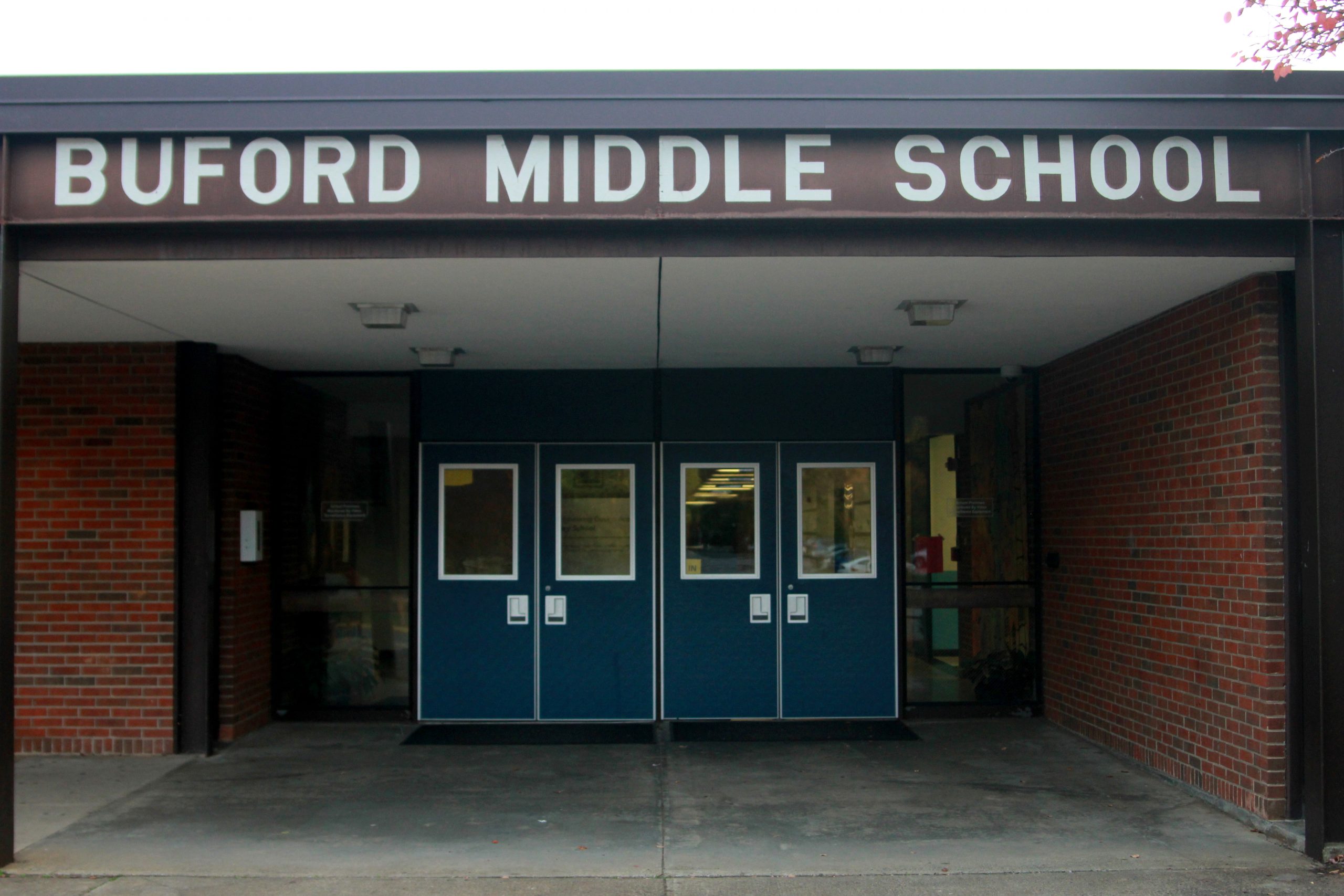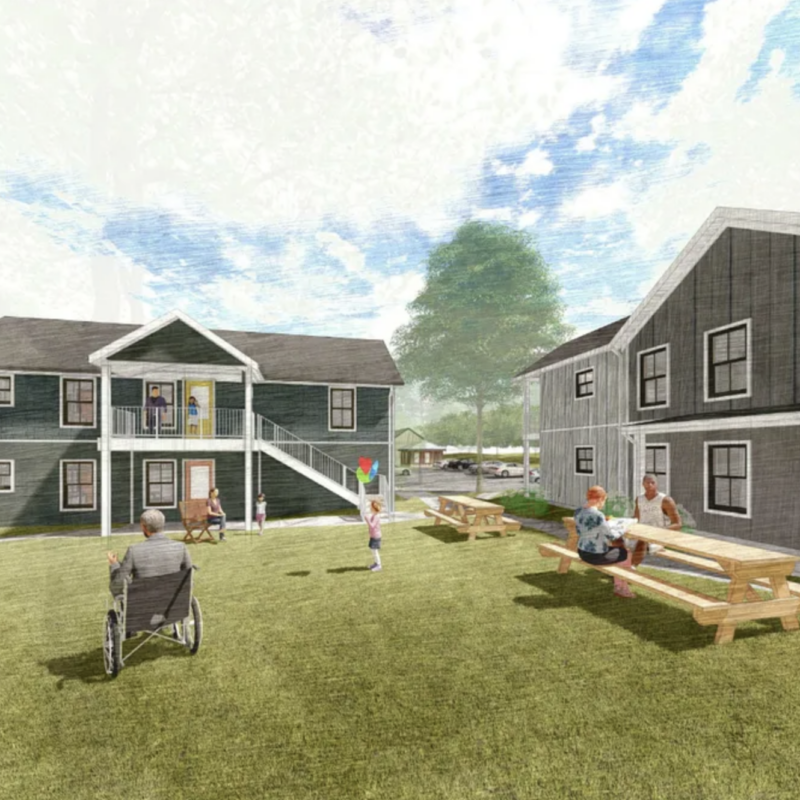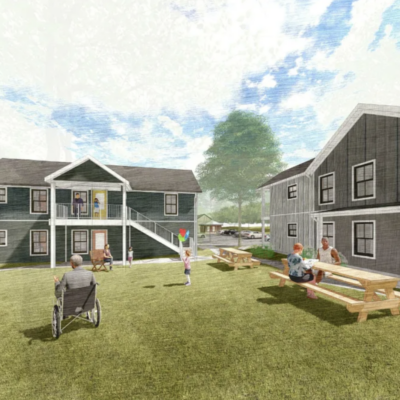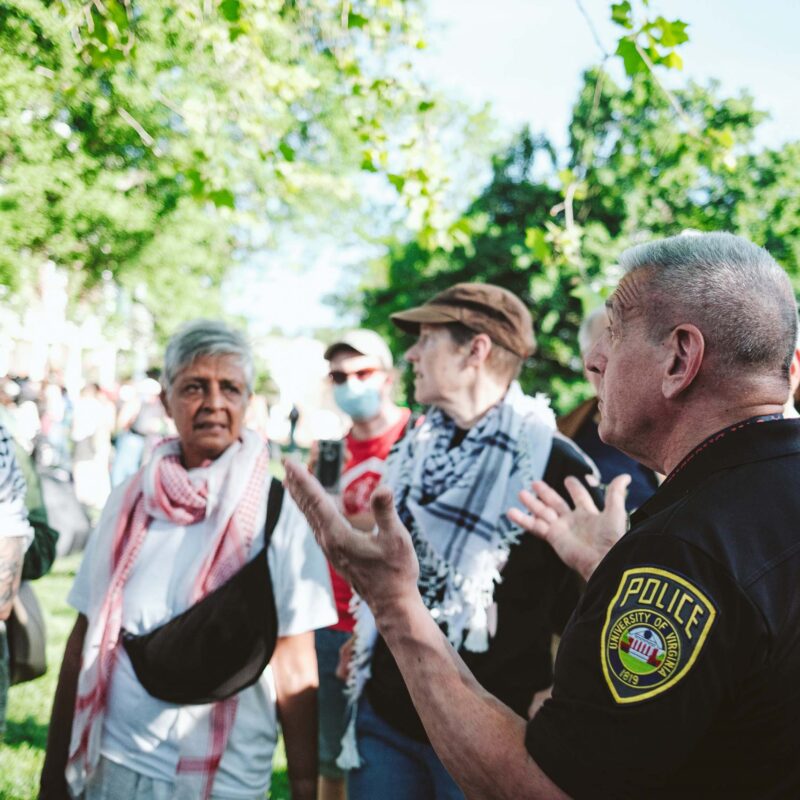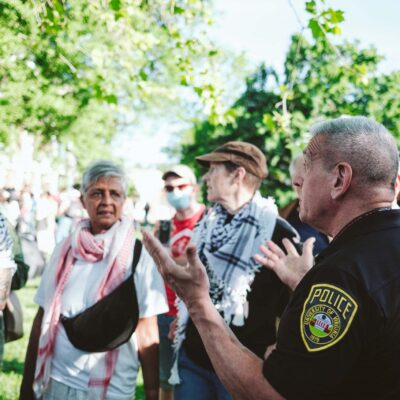By Sofia Heartney
Ahead of the groundbreaking ceremony at Buford Middle School, marking the start of a multi-million-dollar renovation, Charlottesville City Schools Superintendent Royal A. Gurley Jr. recommended changing Buford’s name to Charlottesville Middle School. According to a press release, school board members discussed a name change during a recent meeting. After gathering community feedback, the board plans to vote on the change at its June 27 meeting.
“This recommendation follows the current trend to move away from school names that honor individuals,” Gurley said in the June 5 press release. “In addition, it indicates that we are essentially building a new school serving grades six to eight. The recommended name is fitting since this middle school will become the place that welcomes all Charlottesville sixth-graders from their neighborhood elementary schools.”
The board had been soliciting community comments on a possible Buford name change since May 25, making the school the latest educational institution in the area to formally consider undertaking a full renaming effort. In January, the board voted to change the name of Clark Elementary, named for General George Rogers Clark, who owned enslaved people and led the genocide of Native Americans, to Summit, and Venable Elementary, named for Charles S. Venable, a member of the Confederate Army and a math professor at UVA who perpetuated myths about slavery, to Trailblazers.
But in April, the board voted to pause the city schools’ renaming of Burnley-Moran and Johnson elementaries, and continue engaging with the community to consider new names for the schools. Those involved in the renaming process hope this pause will allow time for more public dialogue to decide on “lasting names that the communities of the schools would embrace,” in the words of board member Sherry Kraft. She says the ultimate goal of the pause is “to make sure that we are approaching this in the very best way we can for our community.”
The school board first began the process of reconsidering school names by appointing the Naming of Facilities Committee in 2020. The following year, the committee began surveying community members on their views of the names of various Charlottesville City Schools. In the January 2023 survey, about 61 percent of respondents supported changing the name of Burnley-Moran, and approximately 50 percent of respondents believed Johnson should be renamed.
Based on information that was collected, the committee recommended that Burnley-Moran and Johnson be renamed Blue Mountain and Cherry Avenue, respectively. These names have been criticized, however, for not being sufficiently relevant to Charlottesville, which led to the renaming pause.
“We want to find the name that will be most appropriate for each of the schools that, again, fits into the values of the school system,” says Beth Baptist, chair of the Naming of Facilities Committee.
During the current pause, the Naming Committee will continue to propose new names for the schools. It plans to talk to local experts about possible names inspired by plants or geographical features unique to Charlottesville, conduct further discussions with the schools’ staff through outside consultants, and solicit names from the public. Ultimately, committee members hope to arrive at names that are informed by “purpose and place within the community,” according to Baptist.
The renaming process has been criticized by some, who argue that it has moved too quickly, relies on inaccurate research, and has not incorporated enough community feedback. Derek Hartline, a former student and teacher at Johnson Elementary, has spoken against changing the name of Johnson at several school board meetings. In an interview, he explained that he opposed the name change because, during Johnson’s time, “there were a lot of merits and achievements that he did that really were strong and put the school system in the right direction early on.”
Johnson Elementary is named for James G. Johnson, who was superintendent of Charlottesville City Schools for 35 years, until 1946. He, Carrie Burnley, and Sarepta Moran were part of the district when it was still segregated, and Burnley and Moran are purported to have had ties to the United Daughters of the Confederacy.
In Johnson’s case, Hartline argues that “there wasn’t any evidence … whether he was for [Jim Crow] or against it.” He has criticized the process of the Naming Committee, saying its members “promised that they would have transparency, and they really just haven’t from the start.”
Specifically, he points to issues he has with the community survey the committee conducted, saying he “felt that the survey was biased in a way, because you couldn’t just say, ‘Keep the name the same.’ You had to vote on names that they created that had to do with ‘purpose’ or ‘place,’ when it wasn’t discussed if that’s what the community wants.”
“Regardless of the accomplishment or merit of these individuals, these schools’ names commemorate an era of segregated education that no longer reflects the division’s values,” said Charlottesville City Schools in an update on its website.
“I think it’s important to send a message that we embrace the diversity of our community,” says Kraft, “and that we want our schools to represent that and to represent our values, rather than just commemorating an individual.”
Ultimately, says Kraft, while “you can’t please all of the people all of the time,” she hopes the school board’s pause of the renaming process will allow it to “please a few more people.”
